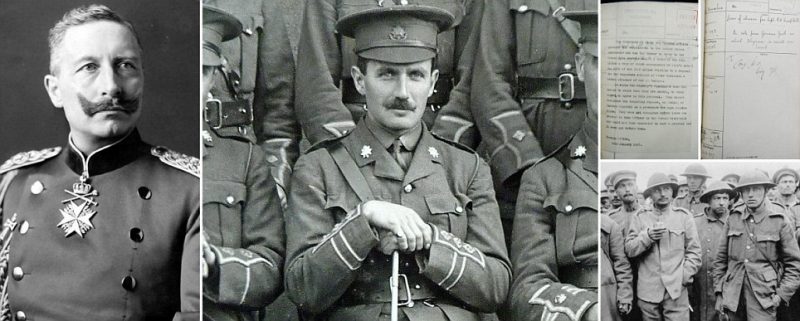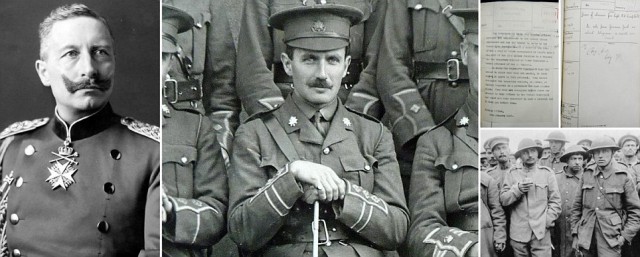During World War One a British Army captain who was being held as a prisoner of war in Germany was given permission to leave and return to England for his mother’s funeral. The only caveat was that he had to return to the prison camp after two weeks. Captain Robert Campbell had asked for special permission from the Kaiser to return to Britain when he heard his mother was ill. He was given the go ahead, however he was told that he must return to the camp after two weeks.
Captain Campbell had joined the Army in 1903. By the time World War One began in 1914, he was leading the First Battalion East Surrey Regiment into battle in north west France. During one intense battle Captain Campbell was seriously injured and captured by the Germans. He was taken to Cologne to be treated in a hospital, then sent to a prisoner of war camp in Magdeburg, north east Germany, the Mail Online reports.
Two years later he was notified that his mother was dying from cancer. Captain Campbell decided to write to Kaiser Wilhelm II himself and was awarded two weeks special leave, on the condition that he would pledge as a British Army officer to return. Captain Campbell left the camp and was able to spend a week at his mother’s bedside in Kent before returning to Germany. His mother died three months later.
Historian Richard van Emden came across the story while he was researching his new book, Meeting the Enemy: The Human Face of the Great War. The book is a review of personal interaction between British and Germans during World War One and addresses how the two sides really felt about each other. Van Emden says it is amazing that the British Army allowed Captain Campbell to return to Germany, and that this was an example of the chivalry and respect that still existed in the early 20th Century. The evidence of the incident came in a note from the National Archives which reported Captain Campbell’s fortnight leave of absence.
Captain Campbell survived his imprisonment, remaining in the camp until the end of the war. He continued to serve in the Armed Forces until he retired in 1925. When World War Two broke out in 1939 he returned to the Army as a Chief Observer in the Royal Observer Corps based on the Isle of Wight. Captain Campbell survived World War Two as well and died in 1966 at the age of 81.

